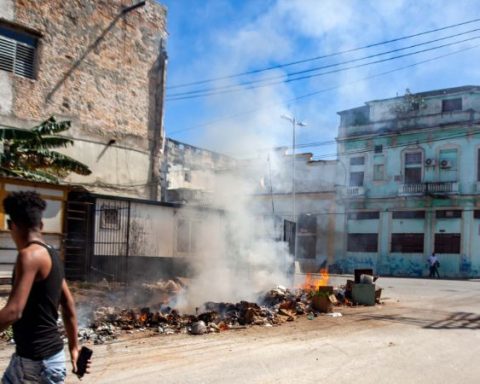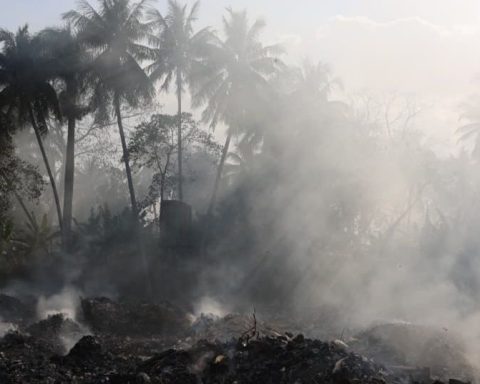MIAMI, United States. – The Minister of Labor and Social Security of Cuba, Marta Elena Feitó, informed official media that all work and teaching activities were suspended due to the total blackout that began in the early hours of this Wednesday.
The official specified that the measure will remain in force until electricity is restored in the country. He also specified that no worker’s salary will be affected.
Cuba was plunged into a new total blackout at 2:08 in the morning this Wednesday, after the disconnection of the National Electric System (SEN), according to reported the Ministry of Energy and Mines on its social networks.
According to the official report, the new disconnection of the SEN was due to the shutdown of the Antonio Guiteras Thermoelectric Plant, the largest in Cuba, “due to the automatic trip.”
According to the official media CubadebateIn the early hours of the day, the Minister of Energy and Mines, Vicente de la O Levy, said that priority would be given to restoring electricity to vital centers such as hospitals and pumping stations. However, he pointed out that the restoration would be a slow and gradual process to avoid setbacks. “It takes place step by step,” he said.
The first total blackout of this year began on October 18 and lasted up to five days in several regions of the country. That time, the MINEM also reported that the “total disconnection” of the SEN was due to the departure of the Antonio Guiteras Thermoelectric Plant.
Then, at the beginning of November, the Electrical Union (UNE) confirmed a new total blackout, supposedly caused by the effects of Hurricane Rafael, which crossed the west of the Island.
Just this Tuesday, the UNE advertisement that the blackouts would simultaneously cover 52% of the national territory during peak hours (evening-night). In this way, the highest impact rate recorded so far this year was repeated, discounting the two general blackouts in October.
The UNE also indicated that the interruptions of the electrical service were due to the lack of fuel and breakdowns in the units of the operational terrestrial thermoelectric plants.
Before the total blackout on October 18, most of the island’s provinces only had three hours of electrical service a day, a situation to which most of the Cuban territories have returned, with the exception of Havana, the provincial capitals and some localities linked to essential services.
The blackouts further complicate the country’s already tense energy situation and not only deteriorate the economic performance of Cuba, which has been mired in a serious crisis for years, but have also been the trigger for anti-government protests. The most notable ones occurred on July 11, 2021the largest in decades, and most recently on March 17 in Santiago de Cuba and other locations.

















